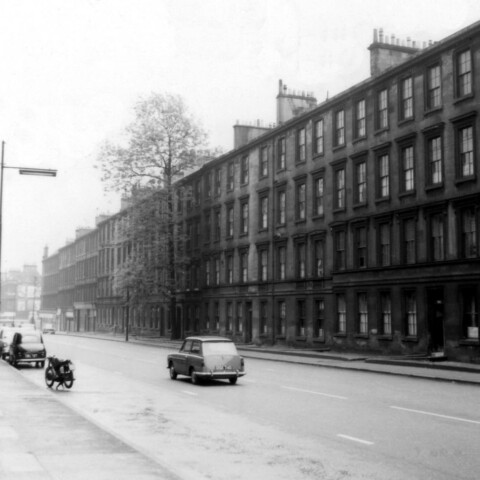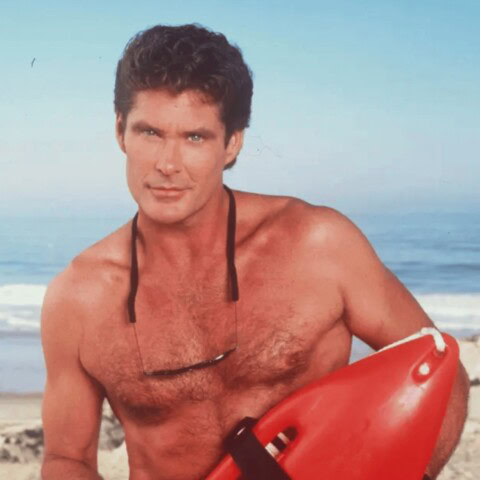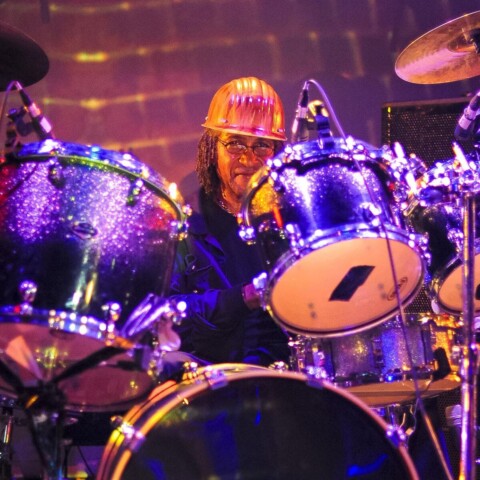In the second of an occasional series, GARY STEEL gives the hard word to some aspiring musical artistes.
 One music reviewer who shall remain nameless actually gave the new platter by Arcade Fire a good review. I feel duty bound, therefore, to inform the unsuspecting that Everything Now (Sony) is about as endearing and useful as a freshly minted deposit of doggy do sitting forlornly on a suburban ‘nature strip’.
One music reviewer who shall remain nameless actually gave the new platter by Arcade Fire a good review. I feel duty bound, therefore, to inform the unsuspecting that Everything Now (Sony) is about as endearing and useful as a freshly minted deposit of doggy do sitting forlornly on a suburban ‘nature strip’.
It’s not that the latest by the celebrated Canadian ‘80s retro fetishists is all stinky, just around 95 per cent execrable. The two redeeming factors are a) the hyper-virtual sound design, which features enjoyably farty synthesiser scrapings, and b) lyrics which at least appear to be trying to engage with the Social And Cultural Issues Of Young People Today.
 What’s sounding increasingly rank and even desperate is the way they’re digging up and spraying their own juices over the bones of styles that were horrible the first time round, and haven’t improved with age. Determined to mine the Thatcherite pomp of Duran Duran and the faux-party glam of Spandau Ballet along with the smooth yet empty aroma of Orchestral Manoeuvres In The Dark with a hint of the pop lustre of the Pet Shop Boys, Everything Now ends up sounding oddly one-dimensional, lacking in bass grunt, and terminally in search of a song to match the synth-pop-into-new romantic style. Rating = 5/10
What’s sounding increasingly rank and even desperate is the way they’re digging up and spraying their own juices over the bones of styles that were horrible the first time round, and haven’t improved with age. Determined to mine the Thatcherite pomp of Duran Duran and the faux-party glam of Spandau Ballet along with the smooth yet empty aroma of Orchestral Manoeuvres In The Dark with a hint of the pop lustre of the Pet Shop Boys, Everything Now ends up sounding oddly one-dimensional, lacking in bass grunt, and terminally in search of a song to match the synth-pop-into-new romantic style. Rating = 5/10
 Given my natural predilections, I should really love Zola Jesus. She’s been compared to Siouxsie and The Banshees, Joy Division, Kate Bush, the Cocteau Twins and Dead Can Dance, all of whose music I have a certain affection for.
Given my natural predilections, I should really love Zola Jesus. She’s been compared to Siouxsie and The Banshees, Joy Division, Kate Bush, the Cocteau Twins and Dead Can Dance, all of whose music I have a certain affection for.
Listening to her latest album Okovi (Sacred Bones) however, is not a gratifying experience. Apparently this doom-laden, troubled music was recorded after Zola (aka Nicole Hummel) retreated to her hometown of Wisconsin, where she dealt with depression and mulled over the dark times experienced by her friends. I’m glad that she found an outlet for her dark thoughts and considerable angst, but the music just isn’t very compelling.
 Despite having elements of the above-named artists along with hints of industrial, goth and electronica, and featuring the occasional enjoyable outburst of gut-churning bass, the record is lacking any of the melodic attributes or tenderness of the Cocteau Twins, any of the idiosyncratic invention of Kate Bush, any of the cut and thrust and lemon-in-a-fresh-wound caterwauling of Siouxsie, any of the profound, haunting musings of an Ian Curtis.
Despite having elements of the above-named artists along with hints of industrial, goth and electronica, and featuring the occasional enjoyable outburst of gut-churning bass, the record is lacking any of the melodic attributes or tenderness of the Cocteau Twins, any of the idiosyncratic invention of Kate Bush, any of the cut and thrust and lemon-in-a-fresh-wound caterwauling of Siouxsie, any of the profound, haunting musings of an Ian Curtis.
While her voice is not without a certain power, her dramatic flourishes actually sound closer to Rihanna’s attempts at big balladry or Sia’s horrible gargling on concrete, and the orbit of modern power R&B than to the aforementioned. Afterwards, I was depressed all right, but only because Okovi was such an underwhelming experience. Rating = 5/10
 It’s hard to think of a single reason Miley Cyrus should be taken seriously, but I’m always open to being persuaded otherwise. Younger Now (RCA) is her first ‘proper’ album since the execrable Bangerz (2013), if one ignores the download-only ‘experimental’ (read: let’s just piss about for a bit) Miley Cyrus & Her Dead Petz, and despite retaining producer Oren Yuel, it marks a huge sea-change in her style and orientation.
It’s hard to think of a single reason Miley Cyrus should be taken seriously, but I’m always open to being persuaded otherwise. Younger Now (RCA) is her first ‘proper’ album since the execrable Bangerz (2013), if one ignores the download-only ‘experimental’ (read: let’s just piss about for a bit) Miley Cyrus & Her Dead Petz, and despite retaining producer Oren Yuel, it marks a huge sea-change in her style and orientation.
Well, superficially, at least. While its lead singles (‘Malibu’ and the title track) project a new, au naturel version of Miley, it’s really still steeped in artifice, both production-wise and artistically. Focus your listening on the bones of these jaunty tunes and they’re essentially as fabricated as songs like ‘Wrecking Ball’, despite a seeming desire to head back to a simpler, more country-oriented aesthetic.
Yes, there are real guitars and several other instruments to be heard on Younger Now, but most of the rhythms sound like a super-charged, glorified click-track. And even worse is the fact that the crisp sound of that glorified click-track is the best thing about the album. Her songs are certainly nothing to write home about. The singles are easily the most memorable cuts, and they sound a whole lot less authentic isolated from the sun-drenched cinematography of the video clips.
After all the nudity and titillation I guess it’s hard for Cyrus to backtrack, and to project a new, chaste and down-to-earth nature girl image. I mean, how would you go about eliminating all those explicit online nude shots? But that probably wouldn’t be an issue in an age where people are (thankfully) able to endlessly reinvent themselves – as long as they’re not a Rolf Harris or a Charles Manson.
 It was Manson that flooded my senses as I perused Younger Now’s booklet with its hodge-podge of pics of Miley as a fresh-faced child and young teen. It was easy to imagine that, had she been born in the ‘50s, she might have ended up as one of the ‘Manson girls.’ But then again, those young women were naïve enough to be fooled by Manson, while Cyrus appears to be a smart and somewhat cynical exploiter of her own celebrity.
It was Manson that flooded my senses as I perused Younger Now’s booklet with its hodge-podge of pics of Miley as a fresh-faced child and young teen. It was easy to imagine that, had she been born in the ‘50s, she might have ended up as one of the ‘Manson girls.’ But then again, those young women were naïve enough to be fooled by Manson, while Cyrus appears to be a smart and somewhat cynical exploiter of her own celebrity.
One of the most cynical moves on Younger Now was convincing legendary country-pop singer Dolly Parton to contribute to the song ‘Rainbowland’, but it’s a rather large backfire. Listen to even the most predictable and rote track by Parton and there’s an intrinsic integrity to what she does, something generous of spirit that I can’t imagine Cyrus could ever aspire to, let alone fully understand. Rating = 4/10















